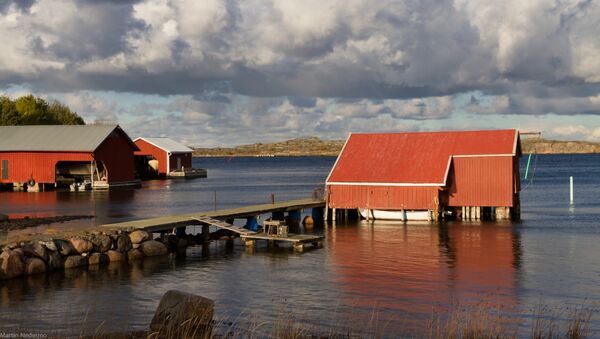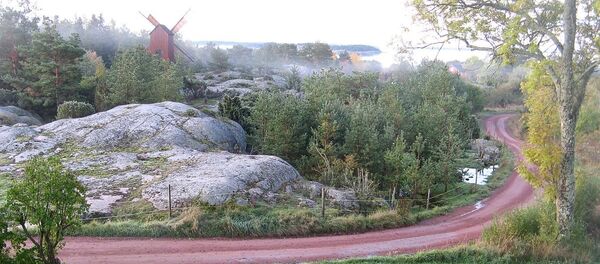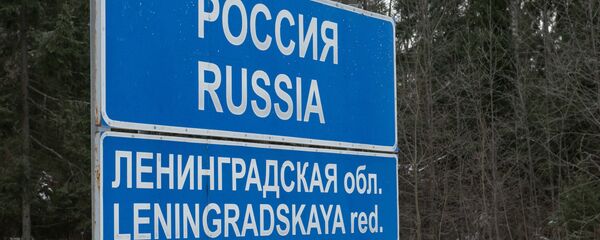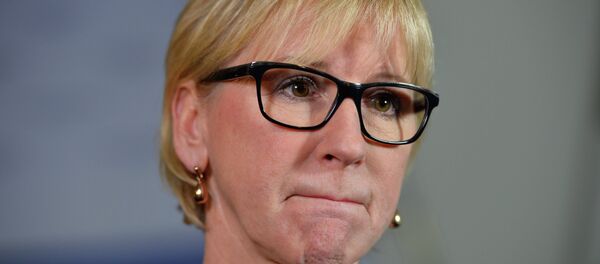"As a demilitarized region, Åland represents a military vacuum. It is susceptible also to restricted, swift operations conducted by small units," Niinistö wrote in his blog, citing the possibility of "little green men" appearing on the string of Baltic islands, which he described as "a gateway to the Gulf of Bothnia" and "a control point of the Baltic Sea."
According to Niinistö, the historic demilitarization of Åland does not reduce security risks, but rather aggravates them, Finnish daily Hufvudstadsbladet reported.
#Finlande Le statut démilitarisé des îles #Åland pourrait être révisé, a déclaré le ministre de la Défense https://t.co/0msjdzNJmT pic.twitter.com/QMQELG7kRj
— Dépêches nordiques (@Fil_Scandinavie) 17 октября 2016 г.
"Åland staying out of possible armed conflicts is, to put it kindly, a naïve idea. It is an idea that is certainly not supported by history," Niinistö explained, possibly alluding to the Åland Crisis, when Swedish, Finnish, Russian and German troops landed on Åland in 1918, following the break-up of the Russian empire.
Niinistö's concern was echoed by Charly Salonius-Pasternak, a researcher at the Finnish Institute of International Affairs.
"The central problem is that Finland has committed itself to defending the Åland Islands, but has nonetheless not prepared any defense," Salonius-Pasternak argued.
Evening elegance. #Kökar #Åland #Ahvenanmaa #archipelago #matkablogi @visitaland pic.twitter.com/l1TKGZ3rFT
— Johanna Suomela (@JohannaSuomela) 4 августа 2016 г.
Meanwhile, Niinistö's proposal triggered criticism in Finland's political establishment. Changing the status of the demilitarized Åland Islands can lead to increased international tensions, former Foreign Minister Erkki Tuomioja told Finnish national broadcaster Yle.
"I believe that Niinistö's statements are dangerous scare-mongering towards our citizens," Erkki Tuomioja said.
"Ålanders would have noticed anything strange in their environment. I have not heard anything in that direction," President Niinistö said.
So far, the islanders themselves have been unimpressed by the Finns Party's belligerent rhetoric. According to Åland MP Mats Löfström, Jussi Niinistö's statements were counterproductive and may damage the somewhat fragile relation between Åland and mainland Finland. According to Löfström, the re-militarization of Åland would increase tensions in the Baltic area further, Finnish national broadcaster Yle reported.
With a population of roughly 30,000, Åland is Finland's only region with Swedish as the single official language, as well as the one of the country's wealthiest regions. Following the break-up of the Russian Empire, sovereignty over Åland was retained by Helsinki, despite the residents' almost unanimous desire to be incorporated into Sweden. By law, Åland is politically neutral and entirely demilitarized; its residents are exempt from conscription to the Finnish Defense Forces and enjoy a broad autonomy.
Fredens öar snart ett minne blott? Demilitariseringen av Åland en laddad fråga https://t.co/xpBaA8dTI5 via @Svenska_Yle #Åland #säkpol
— Pia Johansson (@Pia1Joh) 19 октября 2016 г.
Åland was first demilitarized as a concession to Russia's Crimean War adversaries in 1856. Åland's then foremost fortress of Bomarsund was destroyed by British and French warships in 1854. In 1922, an agreement on the demilitarized and neutral status of the islands was signed by members of the League of Nations. In 1940, a separate agreement was concluded between Finland and the Soviet Union. Since then, a consulate of the Soviet Union and later Russia has been present in Saltvik, Åland, to oversee Finland's obligations regarding the island's demilitarization.
TRAVEL FLASHBACK 2015: The Russian fort in #Åland — #Notvikstornet #Bomarsund#travel #tourism #Finland #history … pic.twitter.com/LtNtHAujDj
— Eric (@EricInAdelaide) 28 августа 2016 г.





